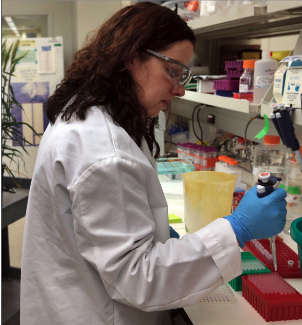GMOs negatively affect our ecosystems
October 10, 2022
With genetically modified
organisms, also known as GMOs,
you have to take the good with the
bad. GMOs are essentially made
by tampering with Mother Nature
herself. There are bound to be some
adverse effects.
GMO production began in
an effort to create solutions
to problems associated with
agriculture and health. For
example, herbicide-resistant crops
were invented to make it easier for
farmers to kill weeds without killing
the crops too. Other crops were
produced for medicinal purposes,
such as providing more vitamins.
The negative outcomes associated
with the use of genetically modified
crops were simply unintended side
effects. Because they are new and
inserted into the environment,
there is little understanding of what
they could cause down the line.
With further research and study,
I do not doubt that GMOs will
someday be effective. But until
science reaches that point, GMOs
should not be regularly introduced
into nature. Trial and error is not a
beneficial research method here.
There have already been
unfortunate effects on the
environment due to GMOs. For
example, in recent years, the
monarch butterfly population
has significantly suffered due
to genetically modified crops.
According to the Environmental
Working Group, monarch
butterflies may go extinct due to the
widespread adoption of herbicides
used with genetically modified
corn and soybeans in the U.S.
Genetically modified crops can
also affect neighboring weeds.
According to The Royal Society,
making crops resistant to a specific
herbicide can cause overuse
use of that herbicide. The weeds
are then continuously exposed
to this herbicide and begin to
grow a tolerance for it. Similarly,
insects can develop a tolerance to
insecticides.
To minimize the effects of GMO
use, farmers can rotate the crops
planted or herbicides used. This
will ensure the surrounding weeds
do not have enough time to grow a
tolerance to one specific herbicide.
Instances like the decrease in the
monarch butterfly population and
the increase of resistant weeds and
insects will continue until further
study is done to better understand
GMOs’ effects on the ecosystem.
In the meantime, farmers should
try to avoid using GMOs, or at the
very least, employ preventative
measures to minimize the effects.



